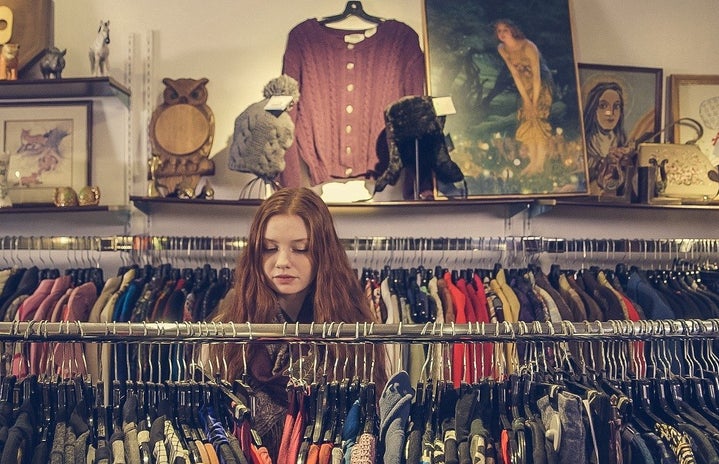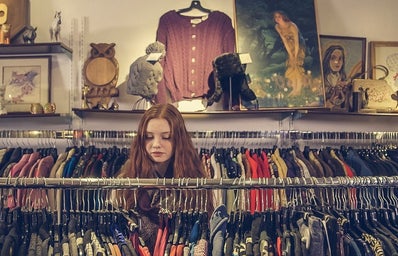Generation Z has a wide variety of styles when it comes to fashion; in just the past couple years, we’ve experienced countless micro-trends, like the “VSCO girl” style, the return of low-rise jeans, or those weird lace up shirts that look like they’re permanently inside out. Fashion is a great way to express yourself. But what happens when we fall prey to these micro-trends too frequently? Fashion in the context of consumerism can be a dangerous thing, and it’s up to us to understand the implications of our spending.
First, let’s look at our main options for purchasing clothing (not including the issues surrounding body positivity and sizing in fashion- that’s a whole other problem).
- Buy brand new clothes from popular fast-fashion stores like Forever 21, H&M, or Shein.
- Pros: They offer trendy clothing that is financially accessible to a large amount of people.
- Cons: The quality of clothing is poor, hence the low prices, which in combination with trend cycles promotes the idea of “disposable clothing.” Not to mention the numerous scandals some of these clothing stores have in their history.
- Shop sustainably sourced and ethically made brands of clothing like Reformation or Boden.
- Pros: These stores provide high-quality clothing that will last for many years; often these clothes are trend-adjacent but not as susceptible to trend cycles.
- Cons: Most brands that are truly completely sustainably run and produced are quite expensive, and for most people looking to build up their wardrobe, it’s unrealistic to buy everything from such companies.
- Shopping secondhand, whether it be online or at more traditional consignment or thrift stores.
- Pros: You can find unique clothing pieces and save them from a life in the landfill. Pricing of secondhand clothing varies widely depending on the store, but in most cases, it’s cheaper than shopping normal retail.
- Cons: It creates questions about who is “allowed” to thrift shop- should cheaper secondhand clothing be left only to those who need it? Also, what’s the whole business with buying clothing for the sole purpose to resell online?
With the saturation of fashion waste steadily building up landfills, largely because of trends that come and go so quickly we barely hold onto them in our closets at all, it’s important to think about where it’s best to shop. Personally, I shop almost exclusively secondhand in order to reduce oversaturation of trendy clothing in my own closet. However, this doesn’t work for everyone. When it comes to my opinion, I think that those that can shop for ethical and sustainable pieces should do so and fill in the gaps of their wardrobe with selectively chosen pieces from fast-fashion brands that are of decent quality and will stay in their wardrobes for a long time. For most of us that don’t have the luxury of shopping these brands, have fun exploring secondhand stores to curate a wardrobe that is uniquely you, and feel good about buying a fashion piece if it’s something you love!
Remember: it’s not most of us that are causing the sustainability crisis, it’s large corporations that do not care about the quality or ethical production of their clothing, but only about making a quick buck. It’s also caused by people who over-buy from fast fashion places to overflow their closets so that could never be used in their entirety. Don’t feel guilty for buying what you can afford- you are not the problem; large corporations who exploit their workers, make questionable clothing designs, and deliberately make poor quality items are.
As consumers, we need to understand the implications of our spending. But, it’s not always us that’s the problem. Most importantly, cultivate a wardrobe that is uniquely you!



